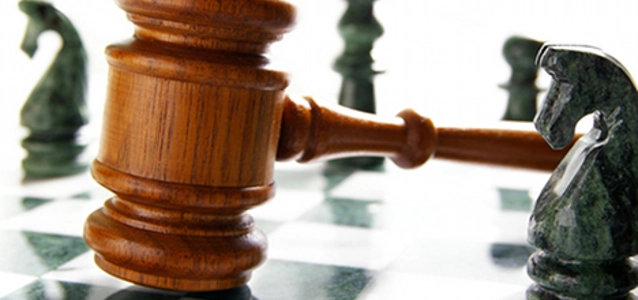
© tom_schmucker dreamstime.com
Business |
The “meat” of Qualcomm’s business model on trial in San Diego
Apple Inc. and its allies square off in a jury trial today against chip supplier Qualcomm Inc. The trial, taking place in San Diego, seeks to determine whether Qualcomm has engaged in illegal patent licensing practices. The plaintiffs are seeking up to USD 27 billion in damages.
In a story filed by Reuters on Friday, and reported on previously in various media outlets, Qualcomm is alleging that Apple forced its longtime business partners to quit paying some royalties and is seeking up to USD 15 billion.
Filed in federal court by Apple in early 2017, the lawsuit focuses on the modem chips that connect devices like the iPhone or Apple Watch to wireless data networks. Qualcomm has spent the past two years mounting a pressure campaign of smaller legal skirmishes against Apple, seekingꟷand in some cases winningꟷiPhone sales bans for violating its patents.
For Apple, the trial is about the freedom to determine its own technology path for blockbuster products by buying chips without having to pay what it calls a “tax” on its innovations in the form of patent licensing fees to Qualcomm that take a cut of the selling price of its devices.
For Qualcomm, the trial, along with similar allegations from U.S. regulators in a January court hearing, will determine the fate of its unique practice of mixing the sale of chips and licensing more than 130,000 patents.
Gaston Kroub, a patent attorney with Kroub, Silbersher & Kolmykov, who is not involved in the case, told Reuters, “This is the day of reckoning that Qualcomm has been very fortunate to avoid for many years. In Apple, they’ve finally come up against a potential licensee that has the resources and the will to put Qualcomm’s business model and licensing practices on trial.”
At center is Qualcomm’s practice that requires device makers to sign a patents license before it will supply chips, which it views as a commonsense measure to ensure it does not do business with companies violating its patents. Apple and other companies have called the “no license, no chips” policy a form of “double dipping.” In other words, Qualcomm is charging for the same intellectual property once during licensing discussions, and then again in the price of the chips where the patents manifest.
Apple and allies are asking for an end to the double-dipping practice and a refund of about USD 9 billion, which may be tripled if the jury finds in Apple’s favor for antitrust allegations concerning contract factories such as Foxconn, who paid the royalties and were reimbursed by Apple. Apple alleges the practices kept Intel Corp. and other rivals like them out of the market for years.
“Even very big companies like Intel have felt at a disadvantage,” said Michael Salzman, an antitrust attorney with Hughes Hubbard & Reed not involved in the case.
Qualcomm’s position, according to the Reuters report, is that it has successful working relationships with contract factories prior to the release of the Apple iPhone. But Apple leveraged its strength in the industry to persuade factories to break their longstanding contracts with Qualcomm, which led to at least USD 7 billion in royalties lost, the chip supplier alleges.
“I don’t think (a Qualcomm victory) would be great for Apple, but if it’s about money, they’ve got plenty of money,” said Stacy Rasgon, an equity analyst for Bernstein who follows Qualcomm. “For Qualcomm, it’s an existential attack on the meat of their business model.”


